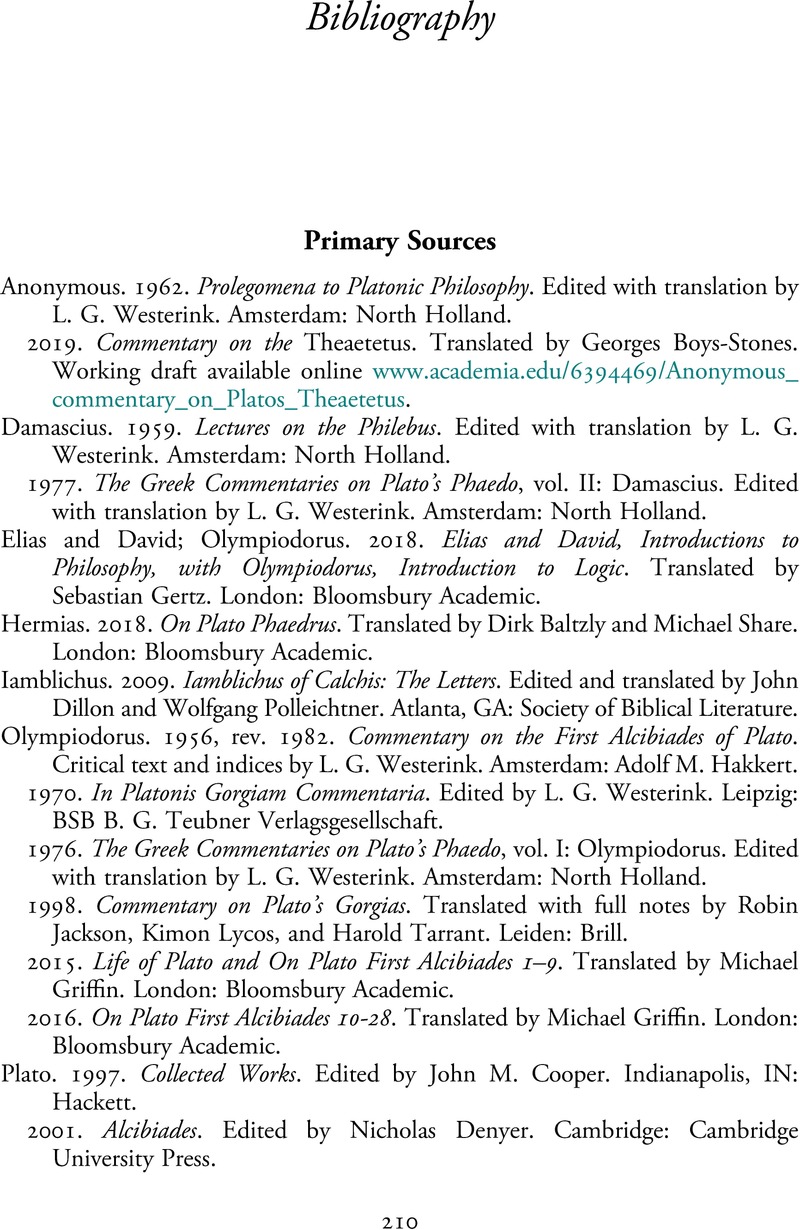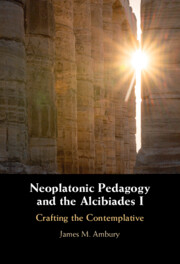Book contents
- Neoplatonic Pedagogy and the Alcibiades I
- Neoplatonic Pedagogy and the Alcibiades I
- Copyright page
- Dedication
- Epigraph
- Contents
- Acknowledgements
- Abbreviations
- Introduction
- Chapter 1 The Self-Knowledge Necessity
- Chapter 2 Exalting Eros
- Chapter 3 How Should I Live?
- Chapter 4 What Do I Want?
- Chapter 5 Who Am I?
- Bibliography
- Names Index
- Passages Index
- Subject Index
- References
Bibliography
Published online by Cambridge University Press: 16 May 2024
- Neoplatonic Pedagogy and the Alcibiades I
- Neoplatonic Pedagogy and the Alcibiades I
- Copyright page
- Dedication
- Epigraph
- Contents
- Acknowledgements
- Abbreviations
- Introduction
- Chapter 1 The Self-Knowledge Necessity
- Chapter 2 Exalting Eros
- Chapter 3 How Should I Live?
- Chapter 4 What Do I Want?
- Chapter 5 Who Am I?
- Bibliography
- Names Index
- Passages Index
- Subject Index
- References
Summary

- Type
- Chapter
- Information
- Neoplatonic Pedagogy and the Alcibiades ICrafting the Contemplative, pp. 210 - 219Publisher: Cambridge University PressPrint publication year: 2024

